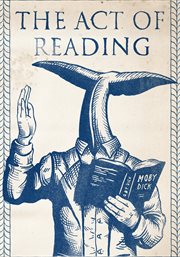Brief encounters Conversations, magic moments, and assorted hijinks
Book - 2014
Legendary talk show host Dick Cavett shares his reflections and reminiscences about Hollywood legends, American cultural icons, and the absurdities of everyday life. On his talk show, Cavett welcomed the leading figures from film, music, theater, literature, comedy, and politics, and engaged them in conversation that made viewers feel that the discussion was taking place in their own living rooms. Here he introduces us to the fascinating characters who have crossed his path, from James Gandolfini and John Lennon to Mel Brooks and Nora Ephron, enhancing our appreciation of their talent, their personalities, and their place in the pantheon. We tag along as Cavett spends an afternoon with Stan Laurel at his modest apartment in Los Angeles, spa...rs with Muhammad Ali at his training camp, and comes to know a young Steve Jobs--who woos him to be Apple's first celebrity pitchman. He also offers piquant commentary on contemporary politics, the indignities of travel, the nature of comedy writing, and the utter improbability of being alive at all.--From publisher description.
- Subjects
- Published
-
New York :
Henry Holt and Company
2014.
- Language
- English
- Main Author
- Edition
- First edition
- Item Description
- "A New York Times book."
Includes index. - Physical Description
- xiv, 267 pages ; 24 cm
- ISBN
- 9780805099775
- Foreword
- Dreams, Let Up on Us!
- The Windows of the Soul Need Cleaning
- Art Did the Darndest Things ... to Your Jokes
- A. Godfrey: A Man for a Long, Long Season
- More of Our Man Godfrey
- Real Americans, Please Stand Up
- Dear Fellow Improbable ...
- Further Improbables
- The Titan and the Pfc.
- Match Him? Not Likely
- I Wrote It, Must I Also Hustle It?
- Lennon's Return
- A Bittersweet Christmas Story
- Sauce for the Goose? Take a Gander
- The Wrath of Grapes
- How Do You Open for a Mind-Reading Horse?
- My Life as a Juvenile Delinquent
- My Liz: The Fantasy
- In Defense of Offense
- The Week That Was
- The First Shall Be Last-or, Anyway, Second
- Waiting (and Waiting) in the Wings
- I Owe William Jennings Bryan an Apology
- Sorry, W.J.B., to Bring This Up Again
- Flying? Increasingly for the Birds
- The Great Melvino, or Our Mr. Brooks
- Tough Sell
- Up Against the Wall
- Last Nude Column (for Now, at Least)
- Deck the Halls with Boughs of Nutty
- Marlene on the Phone
- Should News Come with a Warning Label?
- Schooling Santorum
- Road to Ruin
- Groucho Lives! (In Two Places)
- They Dressed Like Groucho
- Pyramid Power, Over Me
- You Gave Away Your Babies?
- Vamping with Nora
- Comedy Pain and Comedy Pleasure
- The Fine Mess Maker at Home
- Can You Stand Some More Stan?
- How Are the Mighty Fallen, or Where's My Friend?
- Ali, Round Two
- Back When I Was Packing
- More on Guns, with Readers
- And the Oscar Doesn't Go to the Oscars
- Tonight, Tonight, Its World Is Full of Blight
- With Winters Gone, Can We Be Far Behind?
- Missing: Jonathan Winters. Badly
- Hel-LO! You're ... Who Again?
- Good Night, Sweet Soprano
- As Comics Say, "These Kids Today! I Tell Ya!"
- More Sex, Anyone?
- Tough Way to Lose a Friend
- Cavett on Booze, Again
- Only in My Dreams?
- Acknowledgments
- Index
Review by Publisher's Weekly Review
Review by Library Journal Review
Review by Kirkus Book Review

